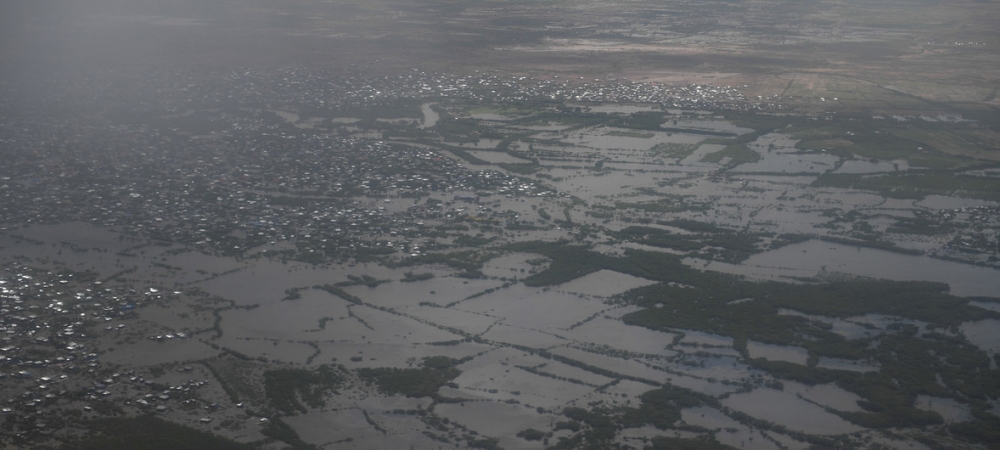$80 million needed to support flood affected communities of Somalia

The United Nations and Government of Somalia have appealed for $80 million to provide urgent assistance for those affected by recent flooding in Somalia’s centre and southern areas.
The flooding was caused by heavy rains across the highlands of Somalia and Ethiopia.
The rainfall, which was the heaviest in over three decades, has affected 750,000 people, with at least 229,000 displaced. The rainfall has also caused fatalities and damaged infrastructure and crop land.
The heavy rain followed an unusually dry period where below average rainfall had been anticipated.
The appeal is part of a larger $1.5 billion appeal made earlier in the year to support over 5 million people who have been affected by drought and conflict across the country.
Peter de Clercq, UN Humanitarian Coordinator for Somalia, noted:
“Unlike in 2017, when funding came in very early in the year to support the famine prevention, less than $370 million has been recorded to date in 2018…This is a fraction of what we require to address the existing case load prior to the onset of the flooding”
So far only 24% of Somalia’s total funding requests have been received, meaning humanitarian partners are unable to introduce a robust plan.
Speaking at the High-Level Roundtable on Flood Response, Peter de Clercq noted the increasing risk of climate change in creating humanitarian emergencies:
“As climate change risks invariably increase…more resources are needed to address the root causes of fragility, chronic poverty and low human development that are affecting the bulk of the population”
Similarly, Deputy Prime Minister Guled also said:
“Tackling climate change is working on resilience: long-term programmes, especially in river areas, and in shorter-term periods, trying to respond to the effects of climate change”
The roundtable highlighted the need for long term investment and programmes focusing on vulnerable river areas and building resilience to climate shocks.
According to the Flood Response Plan, if the heavy rain continues more destruction is likely to occur.
The AIDF Africa Summit will return in February 2018 for its 4th year.
If you’d like to stay informed on the latest updates in aid and development, please sign up for the AIDF newsletter.
Image credit: UN Photo/Ilyas Ahmed















